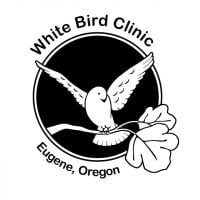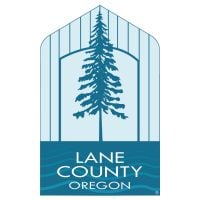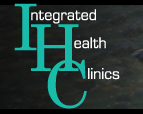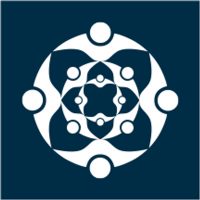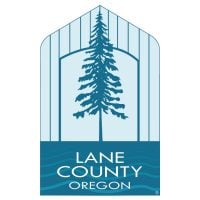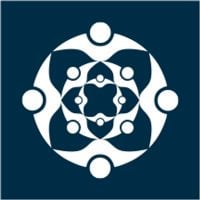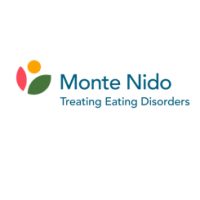Monte Nido
Drug Rehab Center in Eugene, Oregon
Monte Nido is a JCAHO-accredited mental health and dual diagnosis treatment center in Eugene, OR, offering evidence-based therapies for eating disorders and mental health, with inpatient and outpatient services and a focus on compassionate care and long-term recovery.
About Monte Nido in Oregon
Monte Nido is a mental health and dual diagnosis treatment center located in Eugene, OR. They offer a wide range of levels of care and treatment services that address both mental health and eating disorders. Their inpatient services are designed to provide stabilization and crisis intervention, while their outpatient services offers long-term treatment and aftercare support. They use a variety of evidence-based therapies, including cognitive behavioral therapy (CBT), dialectical behavioral therapy (DBT), family therapy, group therapy, trauma therapy, individual therapy and nutritional therapy. Monte Nido is accredited by JCAHO and accepts private health insurance.
Patients at Monte Nido have access to a comprehensive range of mental health and dual diagnosis treatment modalities. They strive to create an environment that promotes healing, growth, and recovery. Their treatment philosophy of compassionate care, combined with evidence-based therapeutic techniques, is designed to empower and equip their clients to live a healthier and more fulfilling life, both during and after their treatment.
Genders
Ages
Modality
Additional
Accreditations

JCAHO
Conditions and Issues Treated
Dual Diagnosis therapy is considered more successful than traditional rehab methods because it treats the addiction and the underlying mental health disorder simultaneously. This comprehensive approach gives Eugene, OR patients the best chance for long-term recovery. If the patient does not receive treatment for both conditions, they are more likely to relapse.
Levels of Care Offered
This center offers a variety of custom treatment tailored to individual recovery. Currently available are Aftercare Support, Dual-Diagnosis, Inpatient, Intensive Outpatient, Outpatient, with additional therapies available as listed below.
Inpatient facilities offer a complete rehab program where the patient stays for an extended period. This allows the staff to monitor the patient on a round-the-clock basis and provide medical assistance if needed.
A significant benefit of inpatient rehab is that it allows for a safe environment for treatment. The patient doesn’t have access to drugs or alcohol, and they’re surrounded by people that want them to succeed and change their lives. Treatment starts with detox and behavioral therapy, followed by group therapy and family involvement.
An intensive outpatient treatment program, or IOP, is set up for those struggling with an addiction to begin the recovery process. However, the patient will not live at the facility during treatment.
IOP involves patients coming in and out of a medical office building regularly to receive therapy and other services while continuing their life outside of these visits.
IOP is a step up from drug detoxification or alcohol detox. However, it’s still considered a phase of recovery rather than the ultimate goal. There are many rehabs and treatment facilities available to patients in need of IOP.
Outpatient treatment consists of counseling and therapy sessions. The outpatient treatment process begins with the addict’s initial detox period, lasting about ten days. Outpatient treatment is used for those who are at moderate risk for “slipping back” into the addiction. It is also used for those who are not currently experiencing any side effects from withdrawal, can handle social pressure, have a stable living environment, and have a good support system.
Aftercare support is often overlooked in the treatment of drug and alcohol addiction. However, it’s an essential part and should be considered when planning a course of rehab.
Aftercare is a term that’s used to refer to any sort of continuing care offered for a drug addict who has voluntarily entered a rehabilitation program. This type of care can be provided in several settings, including outpatient therapy sessions after the addict has completed an inpatient program. There are also 12-step support groups, such as Alcoholics Anonymous, which can provide additional help for addicts trying to stay sober.
Aftercare is vital because addicts often face many challenges as they attempt to recover from drug addiction or alcoholism. Because of the powerful nature of these addictions, those who struggle with a drug or alcohol problem will likely have to face the craving for their substance of choice for the rest of their lives. Recovering can be a lonely and frustrating endeavor, especially without the support of others who are going through similar situations.
Therapies & Programs
Individual Therapy is a crucial component of addiction recovery. Therapists work with patients to identify the root of their addiction and figure out how to better handle the issues that led to them using drugs. Individual Therapy is one on one sessions where people meet with their therapist. Individual therapy provides a safe space for people to open up and discuss personal and sensitive topics which they may not feel comfortable discussing in a group setting.
In this type of therapy, therapists can develop specific solutions for each patient, which helps speed up their recovery process. In addiction recovery, therapy is a crucial part. It allows patients to go deep into their core issues and discover how those problems can be better handled now. Therapy can be performed in individual sessions as well as group settings. In individual therapy for addiction, the patient meets with the therapist one-on-one to focus on the underlying issues of addiction and come up with solutions to prevent future abuse.
Family therapy is a crucial part of drug treatment and getting sober. It is one of the most effective ways to help addicts stay on the path to long-term sobriety. One of the most important parts of family therapy is the relapse prevention plan. During treatment, therapists and doctors will often sit down with the addict and their family to develop a plan if the addict ever feels like they want to use again. This plan should involve steps the addict and family can take together to prevent them from relapsing in the future.
An addict’s family can play a vital part in helping them to avoid relapse because they can spot the warning signs and help them get back on track before it becomes too much of a problem. Family therapy is one of the most effective ways to help addicts stay on the path to long-term sobriety.
Group Therapy is employed by drug treatment centers like Monte Nido to provide the recovering addict with a platform to talk about their feelings and experiences. It also provides for an opportunity to learn from other addicts who have successfully overcome their addiction. It is recommended that all group members be recovering addicts for this type of therapy to work.
This type of therapy involves the use of a variety of therapeutic techniques to help addicts recover from past traumas that might have triggered their substance abuse. During these sessions, therapists will work with the addict to address painful memories and learn how to cope effectively with stressors as they arise.
During these types of sessions, therapists will typically focus on three main goals:
- Identifying and expressing painful emotions associated with past traumas.
- Reducing the effects of stress on an addict’s life by developing more effective coping mechanisms.
- Developing healthy ways of thinking about stressful situations that can help addicts avoid substance abuse issues in the future.
This type of therapy is typically used in conjunction with other types of addiction treatment services. By identifying and dealing with the root cause of addiction, most addicts can overcome their cravings and prevent relapse once they leave rehab.
Many different types of addiction treatment services exist to help addicts safely get sober, but it’s important for recovering individuals to find a therapist or support group that will help them address the root cause of their addiction.
Dialectical behavior therapy (DBT) is a type of cognitive behavioral therapy that is focused on helping those with problematic behaviors caused by intense emotions and thoughts control and regulate their emotions and behavior.
Dialectic Behavior Therapy is beneficial for:
- People who have chronic suicidal thoughts and behaviors
- People who have chronic drug cravings
- People who have difficulty establishing and maintaining personal relationships
- People who have a mental disorder such as Borderline Personality Disorder
- People who have experienced trauma in their life
Cognitive Behavioral Therapy (CBT) is an approach and method in psychotherapy. Monte Nido asks people to investigate how their thoughts, including habitual, harmful, and inaccurate ways of thinking, affect behaviors. CBT is based on the idea that rigid, inflexible ways of thinking cause people to have a limited ability to cope with stress, which leads to emotional distress.
Likewise, CBT helps people identify maladaptive behaviors and replace them with more positive behaviors. It makes you look at the way you perceive something and ask: Is this a realistic belief? CBT asks people to look at the role of behaviors and emotional responses and how they may be distressing in one’s life. The goal of CBT is to change the way people think and behave to achieve a more balanced, healthier lifestyle.
Moreover, CBT has been shown to reduce some types of anxiety disorders, depression, and symptoms related to thoughts or actions that are considered harmful.
Good nutrition can be difficult for people recovering from addiction because they may not feel like eating while they are experiencing the physical and emotional side effects of detoxing.
Nutrition therapy can help addicts in Oregon in the following ways:
- Helps individuals to understand which foods promote good health and support recovery that will assist them during detox
- Provides guidance and education about how to maintain a nutritious diet so they can stay healthy during recovery
- Improves their overall health and well-being, which can reduce the severity of substance withdrawal symptoms.
Nicotine replacement therapy treats nicotine addiction using external sources of nicotine, such as patches or gum to substitute for nicotine. This allows people trying to quit smoking to get their desired dose of nicotine without actually having to smoke cigarettes. There are several different types of NRT devices on the market now, and it is important to talk to your doctor about the best kind for you.
Payment Options Accepted
For specific insurance or payment methods please contact us.
Is your insurance accepted?
Ask an expert, call (888) 674-0062
Additional Details
Specifics, location, and helpful extra information.
Eugene, Oregon 97401 Phone Number(888) 228-1253 Meta DetailsUpdated November 25, 2023
Staff Verified
Monte Nido Patient Reviews
There are no reviews yet. Be the first one to write one.
Eugene, Oregon Addiction Information
Oregon’s drug abuse rates are higher when compared to other states in the country, and currently ranks 5th in the nation for drug-related health issues. Marijuana and prescription opioids are among the top drugs most often abused by teenagers in Oregon. Alcohol abuse in the state is also higher than average; over 6.25% of residents abuse alcohol every year.
In Eugene, Oregon 13.5% of people aged 12 or older reported using an illicit drug in the past month. This is a considerably higher percentage than individuals over the age of 26. Opioids were involved in almost 33% of all fatal overdoses within Oregon between 2010 and 2014. Binge drinking is a major problem among young adults in Eugene. Inpatient programs provide comprehensive care and focus on their recovery without distractions.
Treatment in Nearby Cities
- Scappoose, OR (118.4 mi.)
- Hines, OR (202.8 mi.)
- Newberg, OR (87.0 mi.)
- Fossil, OR (155.9 mi.)
- Hillsboro, OR (102.3 mi.)
Centers near Monte Nido
The facility name, logo and brand are the property and registered trademarks of Monte Nido, and are being used for identification and informational purposes only. Use of these names, logos and brands shall not imply endorsement. RehabNow.org is not affiliated with or sponsored by Monte Nido.


